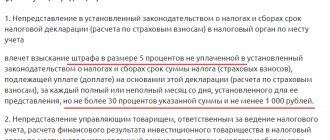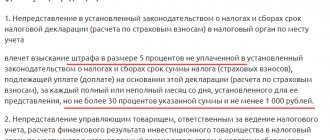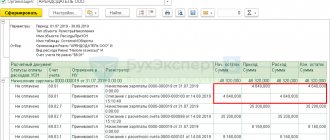Can an individual entrepreneur pay his own wages?
According to the law, entrepreneurs have the right to hire people and pay them wages.
There is also no direct prohibition on paying your own salary, but there is one very important point - payments can only be made in accordance with the employment contract. Article 56 of the Labor Code clearly states that it is impossible to conclude an employment agreement with oneself, since in this case there is no other party to the transaction. That is, an entrepreneur is both an employer and an employee. In addition, it is prohibited to accrue other expenses, the payment of which is provided for by labor law, namely: travel allowances, compensation, social benefits. However, this does not mean that an individual entrepreneur cannot independently manage the income from his business. All financial resources that remain with him after paying taxes and other payments belong to him, and he is free to dispose of them as he wants.
Is it possible to make an entry in your work book that a citizen is engaged in entrepreneurial activity? No, because an individual entrepreneur cannot hire himself, and, accordingly, he does not have the right to make a note in the employment record.
Is it possible to pay your own salary?
Is it possible to pay yourself a salary and how to properly prepare the documents? In practice, there is no such thing as an entrepreneur’s salary. An individual entrepreneur is an individual who is engaged in entrepreneurial activities. Funds received from business activities are his profit.
Whereas salary is a remuneration for work that is paid by the employer to the employee under an employment contract. When concluding an agreement, there are two parties to the transaction (employer and employee). In our case, the employer and employee are one person. Consequently, if the other party is absent, then it is not possible to conclude an employment contract.
Therefore, an individual entrepreneur cannot pay himself a salary. Also, an entrepreneur does not have the right to receive money on account, for travel expenses, to pay himself social benefits, compensation or other payments provided by law. If an entrepreneur makes such payments and displays them as expenses, the tax service will not accept them.
On video: WHEN THE FOUNDING DIRECTOR | There is no need to pay director fees
How can an individual entrepreneur pay himself a salary?
An individual entrepreneur can receive earned funds legally in one of the following ways:
- Take cash from the cashier. The Central Bank allows working according to a simplified cash management scheme. This means that you don’t have to record incoming and outgoing orders, and you don’t have to fill out the cash book at all. Some entrepreneurs still keep cash records; this is not prohibited. When withdrawing money from the cash register, you must simply indicate in the “Base” column that the money was issued to the entrepreneur for personal needs.
- Withdraw money from your current account. Funds can be obtained by transferring the required amount to a bank card and withdrawing it from an ATM, or using a checkbook. In both cases, in the line “Base” you should write “Transfer of own funds for personal needs of the individual entrepreneur.”
Regardless of how the business owner collects his money, he needs to report on his actions to regulatory authorities.
How to pay yourself as an individual entrepreneur
To generate income, an entrepreneur can use two options:
- Transfer funds from your own current account to an individual’s account.
- Take cash from the cash register.
Withdrawing money from a current account
When withdrawing money from a current account, an entrepreneur must adhere to certain rules so as not to cause claims from tax authorities.
As you know, money is withdrawn from the account using payment orders. Special attention should be paid to the “Purpose of payment” field. Individual entrepreneurs should avoid formulations like “Payment of salary” and “Transfer of salary”. Tax authorities may consider that the entrepreneur was thereby withdrawing money to pay wages, demand that he submit a 2-NDFL declaration, pay income tax, insurance premiums and other obligatory payments. There have already been similar precedents.
You should also avoid using salary projects to transfer money for personal needs.
When withdrawing money from a current account to a personal entrepreneur, he can use the wording “Income from business activities” or “Transfer of own funds.”
Withdrawing money through the cash register
An entrepreneur can take profits from the cash register without any restrictions. Unlike a legal entity, it does NOT need:
- maintain cash discipline;
- report on how money is spent;
- prepare advance reports.
Everything that is in the cash register is the entrepreneur’s personal money.
But at the request of an individual entrepreneur, he can maintain cash discipline and issue expense orders. In the cash settlement, you must indicate the justification “Issuing funds to an entrepreneur for personal needs.”
How often can you withdraw money and what amounts are allowed to transfer?
There are no limits for individual entrepreneurs on withdrawing money from an account or taking money from the individual entrepreneur's cash register . Only legal entities must comply with cash limits: they usually amount to no more than 100 thousand rubles.
When withdrawing money from a current account, the bank may be suspicious if the individual entrepreneur does not spend money from the account on business expenses at all, but immediately withdraws money from the account. For example, an individual entrepreneur regularly receives payment for services from legal entities and immediately withdraws the entire amount. This is a risky operating algorithm for individual entrepreneurs, since the bank can block the account and require confirmation that the entrepreneur is not participating in cash-out schemes.
Banks check account transactions in accordance with the recommendations of the Central Bank. Signs of “transit” transactions that indicate the participation of individual entrepreneurs in cash-out schemes are:
- regular transfers of money to the account from different companies;
- withdrawal of money within up to 2 days.
Suspicion will also be raised by an individual entrepreneur who pays taxes less than the standard value or whose tax burden is too low for the industry: usually less than 3% of revenue.
Also, under special control of the bank are all transactions of the entrepreneur in the amount of over 600 thousand rubles. Their banks are required to check them according to the requirements of Federal Law No. 115 in order to combat the financing of terrorism.
If possible, individual entrepreneurs should minimize cash withdrawals from their account using a business card or other means and make maximum use of their current payment account for business expenses.
And if the bank nevertheless suspended operations on the individual entrepreneur’s account, in order to get rid of unfounded claims, the entrepreneur should provide:
- tax return;
- payment orders for paying taxes;
- a free-form letter stating that the money in the current account was the individual entrepreneur’s personal funds and he transferred them to his own account.
How often can you borrow money and in what quantity?
There are no restrictions regarding taking funds for your own needs, that is, the business owner can do this at any time and at any frequency. Also, the legislative framework does not specify restrictions on the amount of funds withdrawn; you can take at least all the money that is currently in the cash register. From a legal point of view, for an individual entrepreneur there is no difference between personal money and company funds.
Novice businessmen, out of ignorance, can confuse income and profit, so they take and spend all the funds that come into the account. This is a serious mistake that can lead to business ruin in the future. It is recommended to take for personal use only those funds that remain after paying all taxes and fees. You should also invest some of your profits in business development.
Give salary to husband of individual entrepreneur
If you are running a business in the Republic of Belarus together with relatives, the question arises: how should an individual entrepreneur pay wages to his husband or wife? By law, all property acquired during a joint marriage is the common property of the spouses. This includes not only movable or immovable property, but also the income of spouses.
At the same time, husband and wife are different people. This is where the employment relationship comes into play. Therefore, the question of whether the wife of an individual entrepreneur can pay her husband a salary must be considered taking into account the provisions of the Labor Code of the Russian Federation.
Here you will need to draw up an employment contract as with a third-party employee. It is necessary to make an entry in the work book and register the employee in all funds. Can an individual entrepreneur pay wages in cash or only by transfer to a card? Salaries can be paid in any convenient way .
As for reporting, business-related expenses include the purchase of goods, payment of utilities, and the purchase of tools necessary for work. All other expenses do not need to be displayed in the reporting documentation. However, this does not mean that an entrepreneur can spend all the money. The individual entrepreneur must keep records of all income and expected expenses. This will allow you to control the availability of funds in the account, timely pay the patent, taxes and fees, as well as cover other unexpected costs.
On video: Hire an individual entrepreneur manager instead of a general director
Accounting and taxes
The individual entrepreneur must pay taxes on all income received. Their size depends on which taxation system the entrepreneur has chosen.
As already stated, a business owner does not have to keep books. But if he nevertheless decided to additionally control his income, then the accounting entries will look like this:
- debit 76, subaccount “Settlements with individual entrepreneurs”, credit 50 - funds from the cash register for personal purposes;
- debit 76, credit 51 - personal income was accrued to the entrepreneur from the current account;
- debit 91, credit 76 - amounts issued for the citizen’s purposes are included in other expenses.
You should also pay insurance premiums to the state in the amount established by law. In 2022, the amount of insurance payments is fixed at 43,211 rubles. Of these:
- 34,445 rubles for compulsory pension insurance (pension insurance);
- 8,766 rubles for compulsory medical insurance (medical insurance).
If the enterprise is large, with income exceeding 300 thousand rubles, then an additional tax of 1% is introduced. You do not need to pay any taxes when withdrawing funds from the cash register.
Report on funds spent
There is no need to report to anyone for the money spent. However, there are cases when an individual entrepreneur does not have a current account. Therefore, the entrepreneur makes payments in cash. A prerequisite is to maintain a book of income and expenses. Any cash transactions are displayed here, including cash inflows from running a business and covering expenses. Costs may be associated with running a business, for example, purchasing goods or when an individual entrepreneur pays wages to employees. Expenses for own needs do not need to be shown in the quarterly (annual) report.
Let's figure out how an individual entrepreneur pays wages to his employee. An entrepreneur must pay all taxes when calculating wages based on the terms of the employment contract. Usually, deductions amount to a significant amount, so in order to reduce the tax burden, another individual entrepreneur is registered. As a result, both entrepreneurs pay contributions and taxes for themselves, which are significantly less than deductions from the employee’s salary.
On video: Founder's income or director's salary. How to receive founder income
How to issue an income certificate for an individual entrepreneur
When applying for social benefits, a visa to travel abroad, taking out a loan and in other similar situations, you cannot do without a certificate of income. If an individual entrepreneur needs such a document, he can draw it up himself. The certificate can be drawn up in free form, but some information must be indicated:
- Full Name;
- taxpayer number (TIN);
- place of residence;
- the amount of income for the period of interest (for example, for the last 3 months and so on).
The document is supported by the signature of the entrepreneur, as well as a seal (if there is one). There is another way to confirm your income - with a tax return. But keep in mind that earnings will only be reflected in it for the past year. In addition, this method is not suitable for an individual entrepreneur working on the patent system.
Liability of individual entrepreneurs for non-payment of wages to employees
A long delay or non-payment of salaries to employees is an offense and entails administrative liability for individual entrepreneurs. Based on the law, the maximum period of delay in payment is 15 calendar days.
Lack of salary from an individual entrepreneur for more than 15 days is not a violation of the law.
If, after the specified time, the hired employee has not received the funds due to him, he has the right to file a statement about violation of the deadlines for issuing the money earned. If the individual entrepreneur does not respond to this document, the employee also has the right to:
- file a lawsuit;
- stop performing your work duties until the due amount is paid. At the same time, the subject is obliged to notify the individual entrepreneur in writing about the fact of termination of work, having received his signature from the entrepreneur as evidence of familiarization with the paper;
- send an application to the labor inspectorate.
An individual entrepreneur must also be prepared for the fact that an employee, subject to a delay in payment of wages, has the following rights:
- not be present at the workplace;
- take part in strikes.
Dismissing an employee for his dissatisfaction with the lack of salary or forcing the employee to write a letter of resignation of his own free will is illegal. The average salary of the subject is maintained for the period of his failure to fulfill his labor duties due to the individual entrepreneur's debt to him.
Is it possible for an individual entrepreneur to work for hire in another company?
There are no restrictions on this issue in the legislative framework, so a business owner can combine running it with work in another organization. There are some restrictions associated with employment in government positions.
For example, military personnel, employees of state corporations, employees of law enforcement agencies and other government agencies are prohibited from registering a business.
In addition, some institutions do not allow their employees working under a contract to engage in entrepreneurial activities in addition to their work. You need to carefully study your employment contract to know for sure about the possibility of such a combination.
Salary of an individual entrepreneur to himself according to a salary project
Many entrepreneurs complain about high bank commissions when withdrawing their own funds to a bank card. Taxes - pay, contributions - make, and also to banks - “unbuckle”. In the end, what remains for the businessman himself?
To reduce costs when cashing out salaries (profits), the individual entrepreneur transfers it to himself according to the salary project. This is one of the services of banking organizations that allows you to simplify and automate the process of transferring funds to an individual’s bank card. As a rule, it is connected to companies that have employees. But today the salary project is also available to individual entrepreneurs working alone.
There is also a commission for the service, but it is significantly lower than with a classic transfer to an individual’s card. For example, at Sberbank it is up to 0.8%, and Tinkoff and Alfa-Bank do not charge a commission at all.
The only thing that can confuse a micro-business owner is that the purpose of payment must indicate “Payment of salary.” But as practice has shown, Financial Monitoring and the Federal Tax Service do not find fault with this nuance, since in the salary register itself the entrepreneur indicates “Other expenses of the entrepreneur.”
How to pay wages to individual entrepreneurs using the simplified tax system (USN) 15%
Funds spent on the personal needs of an entrepreneur are not considered expenses under the “Income minus expenses” tax regime.
A business owner needs to take the following points into account:
- An entrepreneur cannot pay his own wages, since he does not have the right to draw up an employment contract with himself.
- Individual entrepreneurs can withdraw funds from their current account at any time, in any quantity. Money spent on a citizen’s personal needs is not reflected in tax reports.
- The money that an individual entrepreneur withdrew from his current account and spent on his needs is not subject to any additional taxes.
Other employees must be accounted for and all applicable fees and taxes must be paid.
Differences in calculating salaries for individual entrepreneurs and LLCs
Unlike an individual entrepreneur in an LLC, where the only founder and director are one person, the salary situation is somewhat different. In an LLC, the management in the person of the director is formalized differently. He is considered a hired employee for a legal entity, although it turns out that he enters into an employment contract with himself.
All salary payments to the director are made as usual. It is accrued and paid at least 2 times a month. It is necessary to withhold personal income tax from it and transfer it to the budget. Also, insurance premiums are calculated on accrued wages in accordance with the general procedure.
The director of an LLC has the right to paid sick leave, like other employees.







